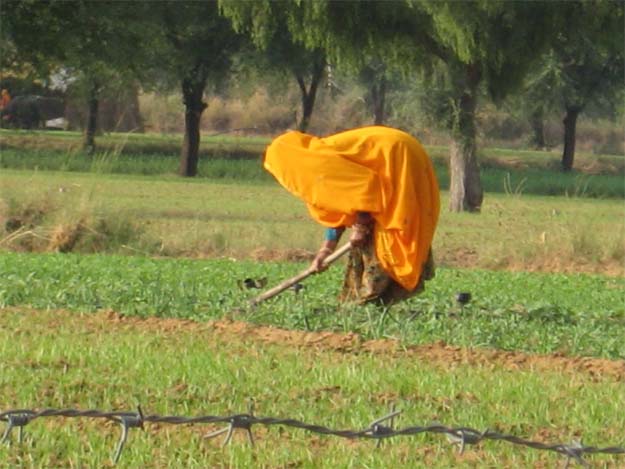Apr 14, 2025
Apr 14, 2025
by Renu Rakesh
"I was married as a child. When I reached my in-laws' home, they owned around 100 high-breed cows and camels, and around 10 acres of land. Ours was a rich family, but a few years after my marriage, the village witnessed a drought and our downfall began. The number of cattle gradually fell. We had to rear other people's cattle to make ends meet but the grazing grounds had shrunk and I had to eventually shift to Ahmedabad with my daughter. In the city, I did household chores for a living. But my earnings were insufficient and I was forced to return to my village - and to my fate. The retreat affected my daughter's education. She can't go to school now, and is forced to help me in daily-wage work to sustain the family."
When Jali Ben, 52, of Sujpura village in Ahmedabad's Detroj block narrated her story, the audience sat still - empathizing with this woman whose eyes welled up as she presented her testimony on the impact of climate change on her life.

22-Nov-2009
More by : Renu Rakesh

|
thanks |